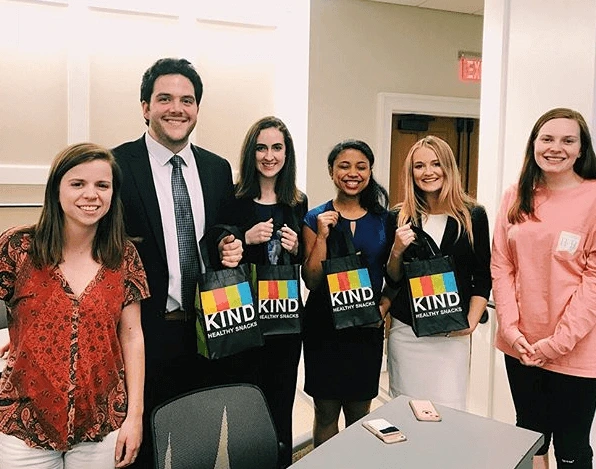By Lisa Merriam
AMA New York Board of Directors
The National Collegiate Athletic Association (NCAA), the massive revenue-generating “nonprofit” organization that regulates college student athletes recently voted to allow NCAA student athlete endorsements and allow athletes to get paid. The details are not yet worked out and will vary by division (rules to come no later than January 2021).
Partly driven by California’s “Fair Pay to Play Act” that allows athletes to earn money through paid endorsements and hire agents, NCAA is moving forward with a massive change to its steadfast adherence to the amateur ideal.
The NCAA athlete compensation vote gave lip service to such principles as diversity, inclusion and gender equity, fair recruiting. In truth, the vote is only the start of what is surely to be a protracted process between the NCAA, athletes, schools and marketers.
NCAA, Athletes, Brands and MONEY
All the right words about promoting opportunity and education with diversity and inclusion aside, this is about money.
While some of that sports-generated money comes from alumni groups and gifts to endowments, the vast majority comes from marketing—from selling jerseys to naming stadiums to earnings from television rights.
We asked American Marketing Association members their thoughts.
Marketer Opinions about NCAA Athlete Compensation
“NCAA Athletic scholarships are the closest thing America still has to indentured servitude. In exchange for room, board, and an apprenticeship/education students are asked to toil up to four years for billionaire institutions while not being able to make a single dime from their own face or name on TV or jerseys. This is just the NCAA’s timid half-step toward the reality of these students being able to share in the wealth they are creating.” – Jason Revzon, strategic digital consultant and AMA New York president-elect
“Here we go again into the divisiveness that has become a hallmark of America’s current culture: the haves vs. the have-nots. This unfortunate decision advantages the wealthy universities and their top athletes, many of who will reap significant benefits when they go pro. College athletes should compete for pride and love of sports, not for financial gain.” – Robert Kahn, Senior Vice President, Business Development, Elateral, and AMA New York past president
“This move could do a lot to temper the wealth disparity in America, especially among marginalized students who rely on these scholarships to receive higher education. Imagine what our future leaders and thinkers could achieve if given the opportunity to leave college with a healthy savings account instead of saddled with debt. NCAA and its member colleges have been profiting from student-athletes for decades. Leveraging their name, likeness, and abilities lead to larger endowments and capital campaigns, increased enrollment, and bigger licensing and sponsorships deals that stretch far beyond the four years these athletes are tethered to the college. Unfortunately, only 2% of students “go pro,” preventing student-athletes from capitalizing on their collegiate gains. The truth is these athletic scholarships provide minimal protections for students despite the epithet that education comes first. Presidential candidate Andrew Yang proposed having college athletes share in royalties. Opponents say paying students is not in the spirit of amateurism. I contend that there are creative ways to meet all goals if the billionaires are willing to share in the spoils.” – Karen McFarlane, CMO Kaye Media Partners and AMA New York current president
“So much is going to depend on how they work out the details. Do you want a star basketball player driving around campus in his Porsche, while the guys on the bench get nothing? How do you run teams and programs with a two-class system? We are talking about a very small percentage of athletes who will benefit greatly. On the other hand, with the California law, if it stands, you’ll have an arms race with programs in certain states being able to lure the best athletes. Something had to be done, but the devil is going to be in the details.” – Jim Biello, sports and entertainment marketing expert and President of U.S. Marketing
“The NCAA ruling to allow student athletes to earn money on endorsements could benefit the standout players but will this risk the whole idea of teamwork? How will this really turn out if there’s a standout QB earning big money while his teammates are expected to defend him getting sacked behind the line of scrimmage? Will the haves and the have nots all play as a well-oiled team or will greed or resentment enter into the picture. I would have preferred that TV rights fees be distributed in fair fashion based on individual as well as team performance. It’s an experiment. It can always be amended. Let’s see what happens.” — Scott Lange, sports marketing executive working with major brands in sports endorsements and former co-executive producer of the New York City Marathon
How Will Marketers Will Drive the Ultimate Solution?
As we “see what happens,” it is important to note that these vast sums of money comes from marketing brands. Thus, marketers have an out-sized role in addressing issues such as income inequity, fairness, teamwork dynamics, and ultimately athlete well-being–stars and non-stars both.
What should marketers include in the deals they strike with the NCAA, individual schools, and with the athletes themselves?
Please join the conversation and comment below.

















